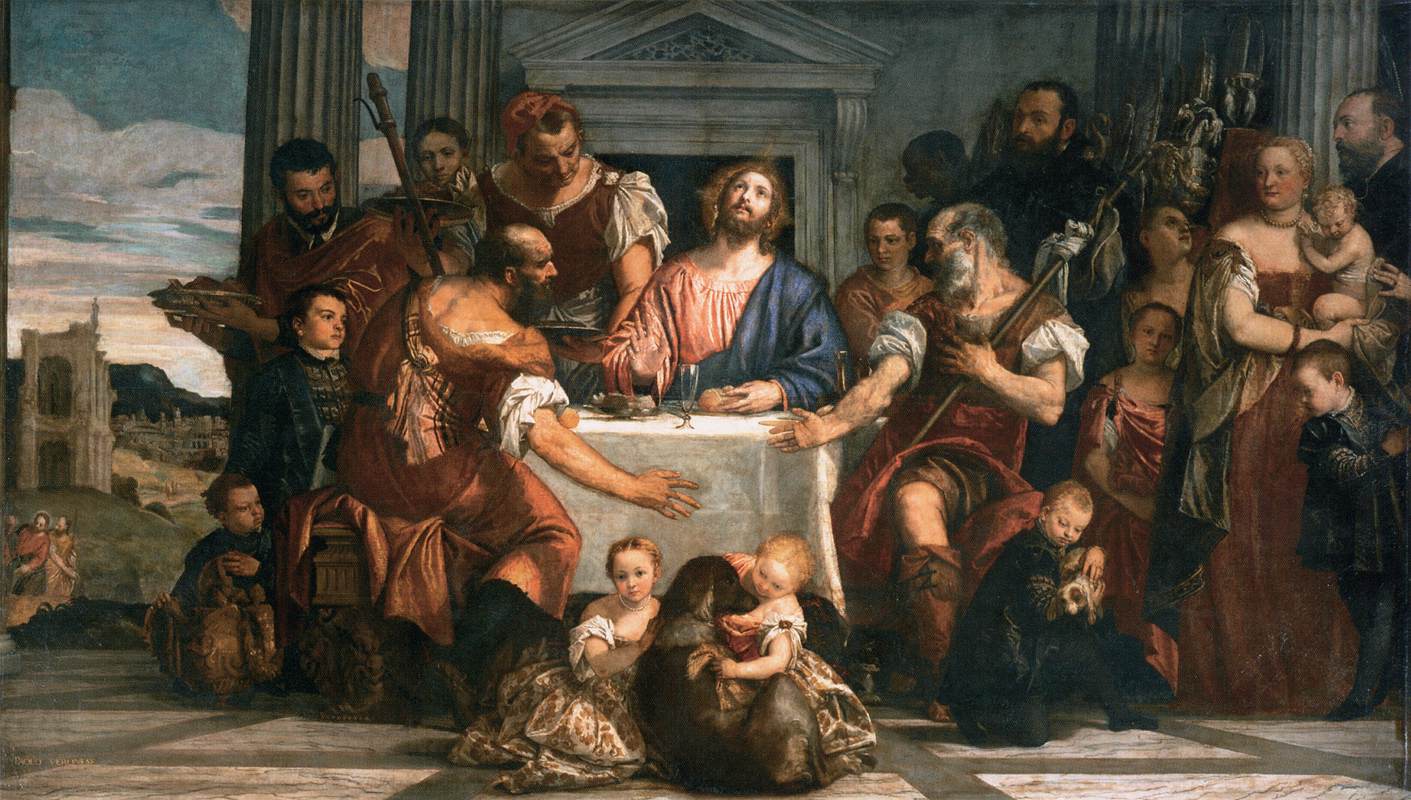Description
The painting "Supper in Emmaus" by renowned artist Paolo Veronese is a masterpiece that captivates the viewer with its distinctive artistic style, masterful composition, and use of vibrant color. With an original size of 242 x 416 cm, this monumental painting stands out for its ability to transport the viewer to a world full of details and emotions.
Veronese's artistic style is characterized by its focus on the realistic representation of human figures and architecture, combined with exuberant ornamentation and meticulous attention to detail. In "Supper in Emmaus", Veronese demonstrates his absolute mastery of this style by portraying Biblical characters in an opulent and luxurious setting. Each figure is carefully outlined, with gestures and expressions that convey a range of emotions, from surprise to awe.
The composition of the painting is impressive, with a carefully balanced arrangement of figures and architectural elements. Veronese uses diagonal lines to guide the viewer's gaze through the scene, creating a sense of movement and dynamism. The central table, filled with food and utensils, becomes the focal point of the composition, while the figures around it cluster in smaller groups, creating a sense of intimacy and camaraderie.
Color plays a crucial role in Veronese's painting, and "Supper in Emmaus" is no exception. The artist uses a rich and vibrant palette, with warm, bright tones that bring the scene to life. The intense colors of the fabrics and jewelery contrast with the softer, earthier tones of the backgrounds and architecture, creating a sense of depth and volume.
The story behind the painting is also fascinating. "Supper in Emmaus" represents the moment when Jesus reveals himself to his disciples after his resurrection, on the way to the city of Emmaus. Veronese manages to capture the excitement and amazement of the disciples as they recognized their teacher in the central figure of the painting. Through his ability to convey emotions and narrate biblical stories, Veronese became a master of Renaissance religious painting.
Although "Supper in Emmaus" is widely recognized and admired, there are lesser-known aspects of this masterpiece. For example, Veronese was called to testify before the Inquisition for the representation of mundane and profane elements in his religious paintings. Although ordered to change some details, Veronese retained much of his distinctive style and managed to evade any harsh punishment.
In conclusion, Paolo Veronese's "Supper in Emmaus" is an extraordinary painting that combines a distinctive artistic style, masterful composition, use of vibrant color, and a fascinating story. This Renaissance masterpiece remains a source of wonder and awe, continuing to captivate viewers with its beauty and storytelling power.

